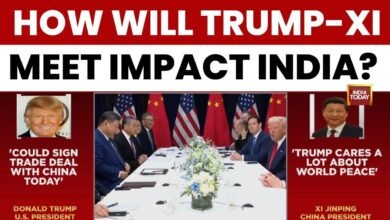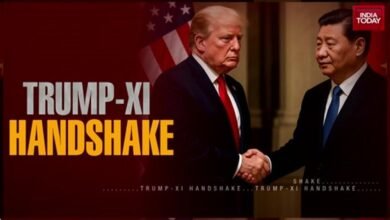India Couldn’t Care Less About Canada’s Election Drama

India Couldn’t Care Less About Canada’s Election Drama
As Canadians prepare to vote on 28 April, their national election is drawing unexpected international attention—and controversy. While China’s covert influence in Canada has been a topic of discussion for years, India is now being mentioned in the same breath. But does this comparison hold water?
Let’s separate fact from fiction.
China’s Long Shadow in Canadian Politics
Beijing’s alleged shadow games in Canada are well-documented. These include espionage, cyber attacks, and a network of proxies—ranging from fake political donations to threats against critics of the Chinese regime. Dissidents, especially those from Chinese and Hong Kong communities, have often found themselves under silent siege, even on Canadian soil.
Chinese influence operations are reported to have manipulated immigrant communities to align more closely with Beijing’s geopolitical interests, often blurring the lines between community engagement and political interference.
Interference of India Lacks Evidence
By contrast, India’s concerns in Canada are rooted not in manipulation, but in national security. The suggestion that India is interfering in Canada’s election lacks evidence and, frankly, logic. India has neither the incentive nor the strategic need to sway political outcomes in a country that holds limited weight in Asian geopolitics.
New Delhi’s outreach to its diaspora is not an act of subversion—it’s a protective measure. It seeks to counter extremism, particularly the kind allegedly being tolerated—or even encouraged—on Canadian soil.
The Khalistan Factor
At the heart of the India-Canada controversy lies a single word: Khalistan.
The Khalistani separatist movement, which advocates for an independent Sikh homeland carved out of India’s Punjab, is largely dormant in India itself. In Canada, however, it remains vocal, active, and, at times, militant.
Indian intelligence agencies have repeatedly raised concerns about pro-Khalistan elements operating in Canada, accusing them of glorifying terrorism, threatening Indian diplomats, and radicalising Sikh youth through online platforms.
A major flashpoint was the 2023 killing of Hardeep Singh Nijjar, a Canadian citizen whom India had designated a terrorist. Canada accused India of involvement in the assassination—a claim New Delhi strongly denied, dismissing it as politically motivated and based on unverified intelligence.
From Blame to Ballots: What’s Really at Stake?
The core of India’s argument is this: the issue isn’t interference in a foreign election—it’s about how Canada handles security threats that spill beyond its borders.
India doesn’t need Canada’s vote. What it needs is Canada’s maturity.
Meanwhile, Canada’s own political landscape has been turbulent. Prime Minister Justin Trudeau was forced to resign after facing dissent within his party, with approval ratings at record lows. His successor, Mark Carney, has yet to signal any shift in Canada’s approach to Khalistan-linked activism.
Freedom of Speech or Extremism?
India’s message to Ottawa has been unwavering: stop giving political oxygen to fringe hate groups. This isn’t an assault on free speech—it’s an act of self-defence.
The challenge, many argue, is that Canada continues to conflate free speech with extremism, failing to draw a clear line between peaceful advocacy and violent ideology.
Is India wrong to raise the alarm? Or is Canada too caught up in political appeasement to recognise the danger?
Diplomacy or Denial?
This isn’t about foreign interference. It’s about a domestic political crisis in Canada turning into an international blame game. Until that’s acknowledged, relations between India and Canada will remain in a stalemate.
Not because of any covert meddling by India—but because of Canada’s unwillingness to confront uncomfortable truths.
As the country heads to the polls, perhaps the focus should return to where it belongs: on casting votes, not casting blame.
Tune In
Source link



